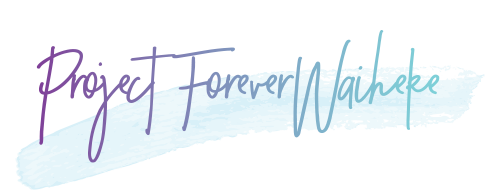News Roundup: June 2020
/First, a big shout-out to our ‘team of 10,000’ who, along with the island’s suppliers and providers, came together to support one another and sustain the Waiheke community through alert levels 3 and 4, and find creative solutions to lockdown problems. Special mentions go to:
· Fullers360, which ran a regular schedule throughout the lockdown period, and allowed free travel for everyone who needed to get to and from the city, or to visit family on Waiheke
· Kai Conscious Café, which turned into ‘Kai Conscious Takeaway’ during level 4, making sure that nobody on the island went hungry
· Waiheke Budgeting Services, who provided food parcels to more than 200 South Americans stranded here with no jobs or financial assistance
· Piritahi Hau Ora, who distributed around 200 care parcels to whānau in need during lockdown
· The nurses who ‘got up our noses’ and conducted hundreds of Covid-19 tests at each of Waiheke’s three medical centres
· The staff at Countdown, who worked long hours and extra shifts to keep the shelves stocked throughout lockdown
· WISCA, who found foster homes for all the animals in their care while they were closed at level 4, (many of which have become permanent homes)
· Waiheke Couriers, who worked overtime to deliver all the goods we ordered online
Although we have now moved to level 1 relatively unscathed from the health crisis posed by the coronavirus, we know the economic impacts are far from over. Tourism is particularly hard-hit. However, the rapid creation of a nationwide digital, outdoor and print campaign “Waiheke: a world apart, not a world away” may already be having an effect. Certainly the amount of traffic on our roads is similar to pre-Covid levels – and the island has been so busy at weekends since level 2 that we have even seen the return of the double-decker buses, much to many islanders’ dismay.
But instead of rushing back to business as usual, a local and national goal now is looking at resetting the tourism industry to focus more on environmental sustainability and community engagement. “The greatest danger in times of turbulence is not the turbulence — it is to act with yesterday’s logic”– Peter Drucker, management guru. Even during lockdown, the Ministry of Tourism was working on a major review of how NZ tourism can better take into account community needs and a greater community share of the benefits of tourism.
With this focus in mind, Project Forever Waiheke recently convened a meeting with key Waiheke organisations involved in tourism and sustainability, including the Local Board, Waiheke Island Tourism Forum and the Waiheke Sustainability Centre, to think creatively about future alliances and a shared vision for both sustainable and restorative tourism on our island. The Local Board is planning for a broad community engagement on this theme in the near future – keep your eye out for notices about that.
This new focus is echoed in a recent report from the University of Auckland’s Koi Tū: The Centre for Informed Futures. Sir Peter Gluckman and colleagues point out that: “Tourism is a huge industry, and one with significant effects on our most iconic landscapes. The sector also generates a huge amount of CO2 emissions from long-haul and domestic air travel (including helicopters) and heavy domestic transport by road… [Despite successive reports on the negative impacts] New Zealand has not significantly diverted from an extractive path with regard to tourism… Is there now an opportunity to pivot to higher-value, lower-volume tourism, as the tourism sector reinvents itself? And beyond this, can tourism focus on Aotearoa values over volume?
The concept of ‘restorative tourism’ – going beyond sustainability to contributing actively to help regenerate damaged landscapes and ecosystems – is gaining momentum internationally. To what extent could we expand on this in our tourism sector, offering more meaningful nature tourism experiences?”
Read more about restorative/regenerative tourism
See how restorative tourism is working in Cuba
Here on Waiheke, we are in a great position to offer more meaningful visitor experiences, and already we are seeing some businesses reinvent themselves for a post-Covid world. Waiheke Walking Festival, for instance, is planning a longer, 18-day schedule, aiming to give walkers a more intimate experience, enticing them to stay longer and support local businesses.
Then there’s On The House, an innovative campaign that gave visitors free accommodation for the weekend of 19-20 June, while pumping what they saved back into local visitor experiences and other island businesses.
Potiki Adventures is also reassessing its visitor experiences for domestic travellers: “Māori concepts that are thousands of years old already hold the key”, says owner/director Bianca Ranson. And EcoZip has partnered with Waiheke Resources Trust to give visitors the chance to offset all their ferry and vehicle transport emissions by planting an eco-sourced native tree.
Another special experience is the night sky above the island, which recently included colourful displays of scintillation. Because light pollution is relatively low, we are lucky to be able to see these awe-inspiring displays without a telescope, says Gareth Davies of Dark-Sky Waiheke.
In summary, the global pandemic and all its horrors has brought us to a turning point. This is our chance to advocate for meaningful change for the sake of all the inhabitants and resources of Waiheke (and indeed of Aotearoa)… Our communities, our wildlife, our forests, our waterways and oceans.
Read More
